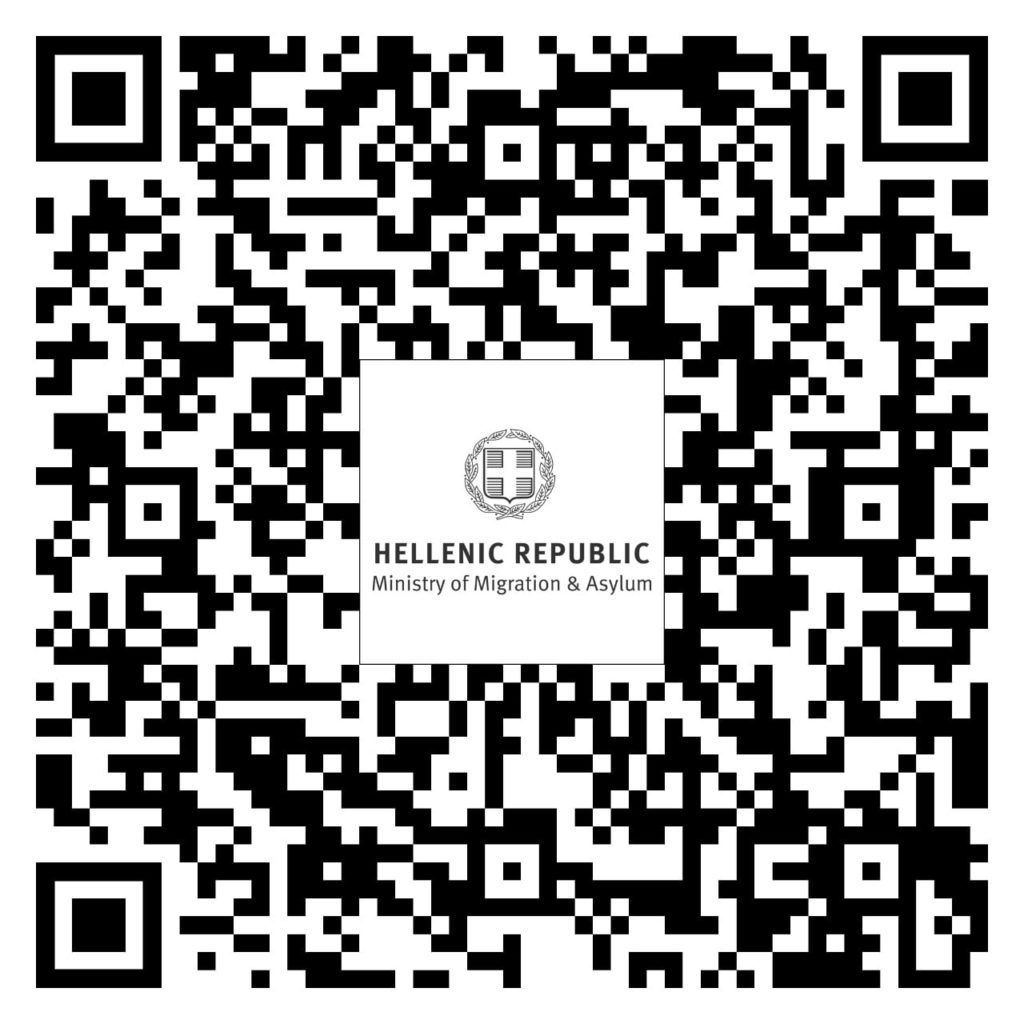Procedures
The procedures for the reception and identification of third-country nationals or stateless persons are divided into the following stages:
Overview of Procedures
Arrival at the Reception Center or Mobile Unit after arrest by the Police / Coast Guard
Registration and Medical Examination
Referral to International Protection Procedure
Further referral and relocation
All procedures are performed with the help of a certified interpreter.
I. Arrival at the Reception Center or Mobile Unit after arrest by the Police / Coast Guard
A. Briefing
- Third-country nationals or stateless persons are informed by the Information Provision Unit of the Reception and Identification Center or by personnel of the Hellenic Police or the Coast Guard of the Hellenic Coast Guard or the Armed Forces, in a language they understand, of their rights and obligations at the point of reception. The United Nations High Commissioner for Refugees (UNHCR) and the International Organization for Migration may also inform them.
- Τhe Medical Screening and Psychosocial Support Unit staffed by EODY personnel conducts the initial / preliminary medical examination and identifies those in need of immediate medical assistance. The system of diagnosis and immediate identification of illness will be used to assess and address the medical needs of the population of undocumented incoming third-country nationals and to identify cases that may require special assistance.
B. Reception and Identification
Third-country nationals or stateless persons are subject to the reception and identification procedures, being in a regime of restriction of their freedom within the Center of Reception and Identification, by decision of the Director.
II. Registration and Medical Examination
Α. Registration of personal [basic and additional] data in the Information System of EL.AS. (Application FIRST RECEPTION)
Β. Identity and Citizenship verification, biometric data for EURODAC I, II & III and face photo
C. Medical Examination - Medical Examinations (medical record)
D. Care for Vulnerable Groups - Provision of Psychosocial Support
III. Referral to International Protection procedures
The initial application at the border is submitted in Reception and Identification Centers on the islands (Lesvos, Chios, Samos, Kos, and Leros) and in Fylakio Evros. Ιn the mainland an initial application may be submitted in the Reception and Identification Centers in Malakasa and Diavata. For more information please visit https://migration.gov.gr/en/gas/diadikasia-asyloy/i-aitisi-gia-asylo/
IV. Further referral and relocation
A. Third-country nationals or stateless persons who do not wish to be granted international protection ae referred to the competent authorities
B. Transfer of third-country nationals to other Regional Units.
How R.I.S. directs entrants
After the completion of the Reception and Identification Procedures
Non-Applicants of Asylum
Applicants of Asylum
Unaccompanied Minors & Other Vulnerable Groups
Individuals are directed to the Hellenic Police n order to retun to their country of origin (obligatory or voluntary return) or for other administrative actions (in cases where individuals can not return to their country).
Individuals are directed to the Regional Asylum office in order to submit application for International Protection.
Individuals are directed to the public body for social support or protection that provides accomodation in an accommodation facility
Vulnerable Groups
Management of Vulnerable Groups
- Minors (unaccompanied or not)
- Direct relatives of those killed in shipwrecks (parents and siblings, children and spouses)
- Disabled
- Elderly (under contract over 65 years)κατά σύμβαση άνω των 65 ετών)
- Women in pregnancy
- Single parent family with minor members
- Victims of human trafficking
- People with serious illnesses
- People with mental and emotional disability
- People who have suffered torture, rape or other forms of psychological, physical or sexual violence, as well as victims of genital mutilation.
Identification of Vulnerability
- During medical screening, the Unit of Medical Screening and Psychological Support of the Reception Center identifies vulnerable individuals and notifies the Director of the Center in order to ensure these individuals receive care and treatment according to their needs.
- Other actors simply point out or indicate to the competent Unit of individuals who present "interesting" behavior, which may conceal vulnerability, in order for the competent Unit to examine the case.
- The Unit will examine / evaluate whether these are indeed people belonging to a vulnerable group.
- In cases when there are signs that an individual is vulnerable but he or she does not want to mention his/her vulnerability, the Headquarters are informed.

